Англійська мова. Тестові завдання для учнів 8-9 класів

Англійська мова.
Тестові завдання для учнів 8-9 класів
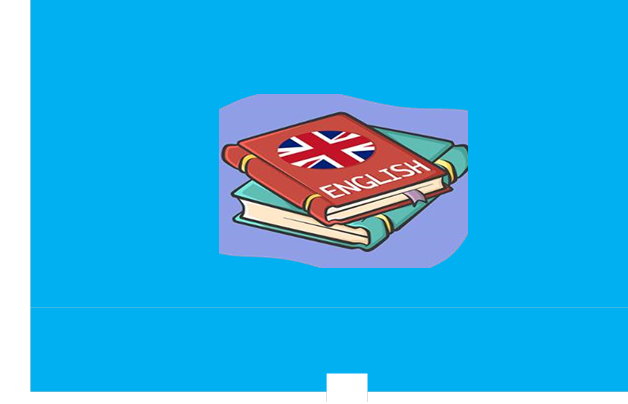
Відділ освіти соціально - гуманітарного управління виконовчого комітету
Богуславської міської ради Київської області
Шупиківської філії ОЗО Богуславський ліцей №2
Англійська мова.
Тестові завдання для учнів 8-9 класів
Укладач Музиченко О.А.
Богуслав
2022
Удк 811.111(075)
А 64
Англійська мова [Текст]: Тестові завдання для учнів 8-9 класів /укл. О.А.
Музиченко.- Богуслав, 2022.- 98c.
Укладач: О. Музиченко, вчитель англійської мови, спеціаліст першої
кваліфікаційної категорії Шупиківської філії
ОЗО Богуславський ліцей №2
Даний посібник призначений для контролю учнів 8- 9 класів та для удосконалення комунікативних англомовних умінь, а також для формування в учнів соціокультурної компетентності, позитивного ставлення до оволодіння мовою.
Навчальний посібник стане нагодою для вчителів англійської мови, учнів середньої та старшої школи та всім бажаючим поглибити свої знання і вдосконалити вміння і навички спілкування англійською мовою, а також може бути використаний для підготовки до НМТ.
Зміст
Вступ……………………………………………………………………………….6
Use of English
Test 1«Present Simple or Present Continuous»……………………………………8
Test 2«Used to»…………………………………………………………………..11
Test 3 «Reported Speech»………………………………………………………...13
Test 4 «Mixed Tenses: Present Simple, Past Simple , Future Simple , Present
Continuous , Past Perfect»………………………………………………………...16
Test 5 «Past Tense»……………………………………………………………….18
Test 6 «People and Relationships»……………………………………………….20
Test 7 «Past Perfect»……………………………………………………………...22 Test 8 «Lexical Test»……………………………………………………………..24
Test 9 «European cuisine»………………………………………………………..26
Test 10 «Inventions and Lifestyles»……………………………………………...28
Test 11 «Sport»…………………………………………………………………...31
Test 12 «The First Conditional»………………………………………………….34
Test 13 «The First Conditional»………………………………………………….35
Test 14 “Natural disasters”………………………………………………………..36
Listening
Test 1 «Important people»………………………………………………………..40
Test 2 «Art»……………………………………………………………………....43
Test 3 «The British Characters»…………………………………………………..44
Test 4 «The gift»……………………………………………………………….....46
Test 5 «Ukrainians ……………………………………………………………….48
Test 6 «Dover collage»…………………………………………………………...49 Test 7 «London Eye»……………………………………………………………..51 Test 8 «Journalist»………………………………………………………………..53
Test 9 «My future profession»…………………………………………………...54
Test 10 «Describing people»……………………………………………………...55
Test 11 «Pollution»……………………………………………………………….58 Test 12 «Earthquake»……………………………………………………………..59
Test 13 «Make healthy food choices»…………………………………………….60
Test 14 «Meals in Ukraine»………………………………………………………61
Reading
Test 1 «Canada geese»……………………………………………………………63
Test 2 «About myself»………………………………………………………...….64
Test 3 «Staying alive at sea»……………………………………………………...66
Test 4 «How singing began»………………………………………………….…..69
Test 5 «Marie Curie»……………………………………………………………..73
Test 6 «Schools in Slums»………………………………………………………..76
Test 7 «Father’s mistakes»………………………………………………………..79
Test 8 «Mount Vesuvius»……………………………………………………...…80
Test 9 «Puppies for sale»…………………………………………………………83
Test 10 «Reflections»………………………………………………………….….84
Test 11 «Family relationships»………………………………………………..….85
Test 12 «First we shape ourselves»…………………………………………….....86
Test 13 «Sincerity of love»……………………………………………………….88
Test 14 «Work»…………………………………………………………………...89
Writing
Test 1……………………………………………………………………………...93
Test 2……………………………………………………………………………...93
Test 3……………………………………………………………………………...93
Test 4…………………………………………………………………………….. 94
Test 5……………………………………………………………………………...94
Test 6……………………………………………………………………………...94
Test 7……………………………………………………………………………...95
Test 8……………………………………………………………………………...95
Test 9……………………………………………………………………………...95
Test 10………………………………………………………………………….....96
Test 11………………………………………………………………………….....96
Test 12………………………………………………………………………….....96
Test 13…………………………………………………………………………….97
Test 14…………………………………………………………………………….97
СПИСОК ВИКОРИСТАНИХ ДЖЕРЕЛ………………………………….....98 ПЕРЕДМОВА
Мета посібника – підготувати учнів середньої школи до контролю знань та удосконалити іншомовну комунікативну компетентність, яка передбачає формування в учнів, таких її складових як мовна, мовленнєва та соціокультурна компетенція шляхом виконання усних та письмових завдань.
Навчальний посібник складається з чотирьох розділів, які включають тестові лексичні та граматичні завдання, які відповідають навчальній програмі із Іноземної мови для 8-9 класів загальноосвітніх навчальних закладів з англійською мовою навчання.
Цей посібник включає матеріали для перевірки навичок аудіювання, читання, письма з англійської мови в 8 та 9 класах та містить такі частини, як: використання мови “Use of English”, аудіювання “Listening”, читання “Reading” та письмо “Writing”. Кожна частина складається з 14 тестових завдань з вибором однієї правильної відповіді.
У посібнику подано практичні завдання, спрямовані на вироблення в учнів навичок і вмінь моделювати та відтворювати різні комунікативні ситуації, наближені до реального спілкування, використовуючи мовний та мовленнєвий матеріал.
Цей посібник адресований вчителям загальноосвітніх навчальних закладів, які зацікавлені в тому, щоб їхні учні успішно підготувалися до складання сесії НМТ.
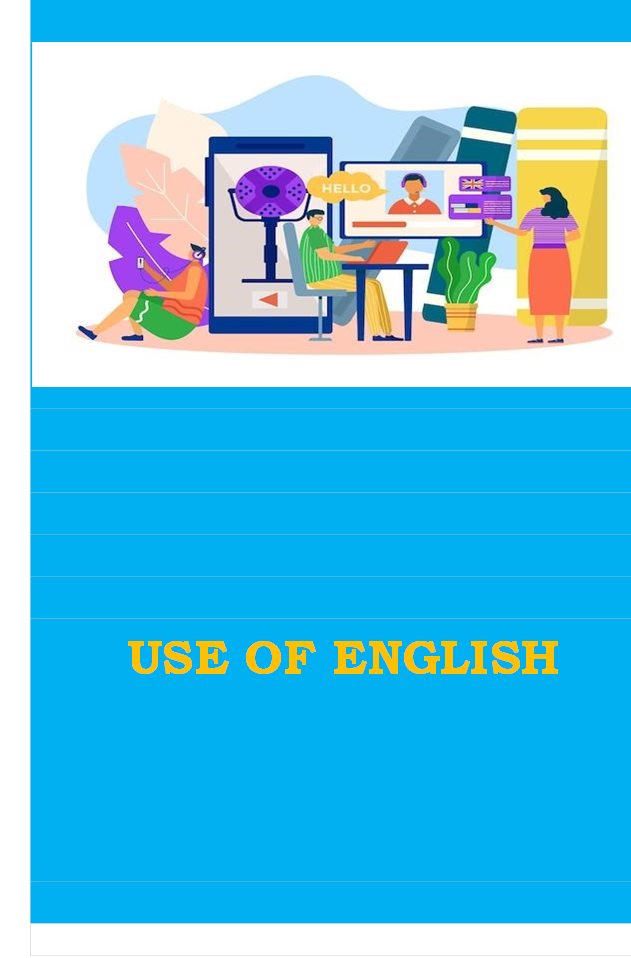
Test 1
«Present Simple or Present Continuous» 1. My friend ________ at the toy shop
a) work
b) works
c) is working
d) has worked
2. The shop _________ at 10 a.m.
a) is opening
b) open
c) opens
d) has been open
3. Julie ____________ working long hours.
a) doesn't mind
b) don't mind
c) minds
d) mind
4. This week, Julie ___________ at the shop because she has taken some time off work.
a) doesn't work
b) don't work
c) doesn't working
d) isn't working
5. Julie ________ some extra money to buy a car.
a) need
b) needs
c) is needing
d) has needed
6. I _______ her since she was ten.
a) know
b) have known
c) knows
d) has known
7. Sarah ________ English for two years.
a) learn
b) is learning
c) has been learning
d) has learnt
8. We ___________ this car since 1995
a) have
b) are having
c) have been having
d) have had
9.We __________ for you since six o'clock this morning
a. have waited
b. are waiting
c. have been waiting
d. wait
10. Ted _______ as a waiter when he was a student.
a) works
b) has worked
c) has been working
d) worked
11___________a swimming pool in the palace. a) That is
b) There is
c) This is
d) It is
12____ ten bedrooms in the castle.
a) These are
b) Those are
c) There are
d) They are
Test 2
«Used to»
1. We ... play volleyball at school, but we do it at the lyceum а) used to
b) didn't use to
c) used
2. Fiona ... to live in an old castle before Schrek saved her.
а) used to
b) didn't use to
c) used
3. ... they ... drink herbal tea when they lived in the UK?
а) Did ... use to
b) Did ... used to
c) Were ... used to
4. My mum ... to work at school, but now she's a consultant in Education Centre and she misses her pupils a lot.
а) didn't use to
b) used to
c) used
5. ... Frank ... live in Rome before he moved to our city?
а) Did ... use to
b) Did ... used to
c) Was ... used
6. I ... have oatmeal for breakfast, but now I prefer eggs and bacon. а) didn't used to
b) use to
c) used to
7. Their children ... go to the school in our neighbourhood, but now they do. а) didn't use to
b) used to
c) weren't used to
8. People ... to drive cars in the 13th century. They went horseback instead. а) didn't use to
b) used to
c) didn't use
9. Women ... wear trousers in the past. Now it's a common thing. а) didn't use to
b) used to
c) didn't use
10. Mr Black ... work as an engineer. Now he has retired from work and is a volunteer at a local social service centre.
а) use to
b) used to
c) didn't use
11. ... you ... study at a college? - No. I've just passed my school-leaving exams. а) Do ... used to
b) didn't use
c) Did ... use to
12. We ... do a lot of online tests before the pandemic, but now we do. а) didn't use
b) didn't use to
c) Did ... use
Test 3
«Reported Speech»
1. Greg said, ‘I live in Newcastle.’ Greg said that he _________________ in Newcastle.
а) is living
b) lives
c) lived
d) was living
2. Greg said, ‘My grandparents lived in a cottage.’ Greg said that his grandparents _________________ in a cottage.
а) were living
b) lived
c) live
d) had lived
3. Greg said, ‘I’m sharing a room with a friend.’ Greg said that he ______________ a room with his friend.
а) was sharing
b) shares
c) were sharing
d) share
4. Greg said, ‘My girlfriend can’t have a dog.’ Greg said that his girlfriend _____________ ___________ a dog.
а) can’t have
b) couldn’t have
c) don’t have
d) doesn’t have
5. "I’m watching a documentary on TV now". Dad told me
________________ .
а) (that) I was watching a documentary on TV then
b) (that) he was watching a documentary on TV now
c) (that) he was watching a documentary on TV then
d) (that) I was watching a documentary on TV now
6. 'I live in the centre.' → She told me that she ___ in the centre, but I think she's moved.
а) has lived
b) had lived
c) lives
d) lived
7. " I've finished the housework", she said
а) She said that she has finished the housework
b) She said that she had finished the housework
c) She said she finished the housework
d) She said that she is finishing the housework
8. According to the rule of Reported speech, the Present Simle Tense changes into
а) Present Perfect
b) Present Continuous
c) Past Simple
d) Past Perfect
9. Yesterday in reported speech changes into
а) doesn't change at all
b) the day before
c) that day
d) those day
10. Report the statement
George said, «I want to drink some Indian tea.»
а) George said to wanted to drink some Indian tea.
b) George said that he want drink some Indian tea.
c) George said that he wanted to drink some Indian tea.
d) George said he had wanted to drink some Indian tea.
11. Report the statement Tom: "I haven't been to the cinema".
а) Tom said I haven't been to the cinema.
b) Tom said he hadn't been to the cinema.
c) Tom said I hadn't been to the cinema.
d) Tom said he wasn't at the cinema.
12. Report the statement Mike: "I can't speak French".
а) Mike told he can't speak French
b) Mike told he couldn't speak French.
c) Mike told he can speak French.
d) Mike told he didn't speak French
Test 4
Mixed Tenses : Present Simple, Past Simple , Future Simple , Present Continuous , Past Perfect .
1. She ...(do) her morning exercises every day.
а) do
b) does
c) did
2. Vicky and her family ...(live ) here for along time .
а) have lived
b) lived
c) had lived
3. They ...( not enjoy) the carate class yesterday.
а) aren`t enjoyed
b) hasn`t enjoy
c) didn`t enjoy
4. We.. (invite ) some famous artists for this party.
а) invite
b) will invite
c) invited
5. We ...(visit ) our friends tonight.
а) are visiting
b) visiting
c) visit
6. This write ...(write ) many interesting books .
а) wrote
b) was written
c) has written
7. My sister ... (already/ do) the work and can go home.
а) already did
b) have already done
c) has already done
8. He ...( live) in Lviv when he ...(be) young .
а) lived , was
b) lives , be
c) lived , been
9. We ...( go ) to school every day . They often ...(play) tennis at school. а) goes , plays
b) go , play
c) are going , play
10. He ... ( write ) an interesting new book nowadays.
а) writes
b) are writing
c) is writing
11. We ... (not / have) any rain for a long time .
а) haven`t had
b) didn`t have
c) haven`t have
12. Liz is a doctor. He ... ( study ) medicine for many years.
а) studied
b) had studied
c) has studied
Test 5
«Past Tense»
1. Choose correct option. Last summer Julie and Brian....Australia and...at a lovely hotel in Sydney.
а) visited/stayed
b) was visiting/stayed
c) was visiting/were staying
2. Choose correct option.-...you see Kate yesterday?Yes. We....lunch together. а) did/had
b) did/have
c) had/had
3. Choose correct option.My sister.....the piano,but now she doesn't. а) played
b) used to play
c) didn't use to play
4. Choose correct option. I...... the windows when the telephone rang. а) was cleaning
b) cleaned
c) were cleaning
5. Choose correct option. We... an accident while we were driving to the airport.
а) saw
b) seen
c) were seeing
6. Choose correct option. He.... carefully while they were explaining the plan to him.
а) was listening
b) listened
c) had been listening
7. Choose correct option. What ...... when the tornado hit the town? а) did you do
b) were you doing
c) had you been doing
8. Choose correct option. Mary was angry because her husband.... her birthday.
а) was forgetting b had forgotten
c) had been forgetting
9. Choose correct option. We .... to the theatre after we had bought the tickets. а) went b had gone
c) were going
10. Choose correct option. Dad....to work by the time I woke up. а) had gone
b) went
c) was going
11. Choose correct option. They.......for three hours when they stopped for a rest.
а) had been driving
b) were driving
c) drove
12. Choose correct option. He ....on the computer for an hour before she came to help him.
а) had been working
b) was working
c) worke
Test 6
«People and Relationships» 1. an action expressing disapproval
а) support
b) end
c) protest
2. be actively concerned about something
а) support
b) sifnature
c) aim
3. have the intention of achieving
а) proposal
b) protest
c) aim
4. a person who offers their time for free
а) support
b) volunteer
c) donation
5. put a stop to something
а) boycott
b) campaign
c) end
6. a suggestion to solve a problem
а) proposal
b) donation
c) signature
7. Someone who … always tells the truth
а) kind
b) honest 8. Someone who …is very intelligent
а) clever
b) confident
9. Someone who …shows they care about your problems
а) sympathetic
b) patient
10. Someone who …is caring about others
а) patient
b) kind
11. Someone who …doesn’t show fear in a difficult situation
а) generous
b) brave
12. Someone who …waits for others even if they take a long time а) fair
b) patie
Test 7
«Past Perfect»
1. Add a sentence with the Past Perfect. We rushed to the station, but we were too late.
а) The train is going.
b) The train had gone.
c) The train had been going.
2. Add the sentence with Past Perfect. I did not have an umbrella, but that did not matter.
а) The rain had stopped.
b) The rain was stop.
c) The rain had been stopping.
3. Add a sentence with the Past Perfect. The boss invited me to lunch yesterday, but I had to refuse the invitation.
а) I have already eaten my sandwiches.
b) I am eating my sandwiches.
c) I had already eaten my sandwiches.
4. Find the translation of the word "devote".
а) заспокоювати b присвячувати
c) звинувачувати
5. Find the translation of the word "експонат старовини". а) old exhibit
b) exhibit of old
c) exhibit of the aniquity
6. Choose the meaning of the word "still life"
а) a painting, a drawing of a person
b) a picture of an arrangement of objects, for example flowers or fruit
c) an area of countryside or land of a particular type
7. Find the meaning of the word "a sitter".
а) someone who sits or stands while someone else paints them
b) an area of countryside or land of a particular type
c) a large public event at which you show or sell products
8. Find the correct translation.
Том читав цю книгу увесь день вчора.
а) Tom is reading this book all day yesterday.
b) Tom had reading this book all day yesterday.
c) Tom had been reading this book all day yesterday.
9. What mean "a painting made on a wall while the plaster is still wet"? а) a portrait
b) a fresco
c) a trend
10. One of phrases is excessive. Which?
The Arts include ...
а) fine arts
b) applied arts
c) portrait
Test 8
«Lexical Test»
1. As long as______have needs that need to be represented they'll need trade unions.
а) employees
b) employers
c) managers
d) partners
2. We'll need a _____to carry all these things to the house. а) scooter
b) van
c) coach
3. Our flat is very ______. We have a lot of rooms to move around in. а) tiny
b) small
c) spacious
4. Could you buy a ______of milk at the supermarket?
а) carton
b) bowl
c) glass
5. Tom is ______the furniture right now.
а) hoovering
b) dusting
c) mopping
6. There's a strong wind ______today.
а) blowing
b) freezing
c) flowing
7. Dan felt a ______pain in his back.
а) sharp
b) cruel
c) bright
8. Patrick gave Sue a _____to the airport.
а) drive
b) ride
c) travel
9. Don't eat that mushroom! It's ______.
а) clumsy b curious
c) poisonous
10. John _______a muscle lifting weights.
а) pulled
b) broke
c) twisted
11. Emma _____the laundry on Thursdays.
а) does
b) cleans
c) makes
12. The strike ______her unconscious.
а) knocked
b) made
c) threw
Test 9 «European cuisine»
1. Eurpean food is known as...
а) Continental food
b) Western food
c) Blockbuster food
d) Chinese food
2. All the Romans ate the same food during the timesof the Empire. а) True
b) False
3. Medieval cuisine...
а) obeyed the Church
b) started to change the diversity
c) was still the same
4. What do we call "cuisine classique"?
а) the culinary standart
b) nouvelle cuisine
c) a mixture of aristocratic and bourgeois cuisine
5. A new approach to cuisine that utilized the growing culinary methods at their disposal is...
а) nouvelle cuisine
b) European cuisine
c) cuisine classique
6. French food...
а) is all about pizzas and pasta
b) doesn't include widespread usage of spices
c) lays emphasis on culinary art of varied spices
7. What are the common methods of cooking in Europe?
а) braising
b) roasting
c) baking
d) boiling
Test 10
«Inventions and Lifestyles» 1. Your battery is now empty. Please can you recharge it?
а) Your message has not been sent for technical reasons
b) There is not enough energy for you to use this device
c) Do not use laptops or phones without first checking with the staff while on board
d) You can buy protection for your computer online
2. Ask a crew member if you wish to use electronic equipment during the flight
а) Do not use laptops or phones without first checking with the staff while on board
b) You do not have enough money to telephone anybody
c) There is not enough energy for you to use this device d ) You can only use electronic equipment when the aircraft has stopped
3. Defend your PC from hackers and viruses. Download "Anti-Virus" now!
а) You can only use electronic equipment when the aircraft has stopped
b) You can delete a possible virus from your PC immediately
c) You can buy protection for your computer online
d) Your message has not been sent for technical reasons
4. Electronic devices may not be used until the plane has come to a standstill
а) You can only use electronic equipment when the aircraft has stopped
b) You do not have enough money to telephone anybody
c) There is not enough energy for you to use this device
d) You can delete a possible virus from PC immediately
5. There is an insufficient credit on your phone to make this call
а) Your message has not been sent for technical reasons
b) Do not use laptops or phones without first checking with the staff while on board
c) You do not have enough money to telephone anybody
d) There is not enough energy for you to use this device
6. Your computer may have been infected. Do you wish to remove this file now?
а) You do not have enough money to telephone anybody
b) You can only use electronic equipment when the aircraft has stopped
c) You can buy protection for your computer online
d) You can delete a possible virus from your PC immediately 7. Large collection of information
а) server
b) database
c) megabyte
d) CD-ROM
8. Central computer
а) server
b) terminal
c) RAM
d) palmtop
9. Model for writing similar kinds of texts, e.g.letters
а) scanner
b) spreadsheet
c) template
d) chat room
10. Programme which puts figures in grids for easier calculation а) spam
b) megabyte
c) spreadsheet
d) attachment
11. Memory in a computer used for temporary storage of information а) scanner
b) server
c) database
d) RAM
12. Website where people get information about a certain topic they are interested in
а) chat room
b) spam
c) template
d) newsgroup
Test 11
«Sport» 1. What letters are missed in the word I_J_RY
а) N/U
b) N/A
c) U/N
2. Choose the correct translation of phrase: to be in the open
а) бути відкритим
b) бути на відкритому повітрі
c) бути відвертим
3.This sport is called .... .

а) skiing
b) biathlon
c) skating
d) figure skating
4.This sport is called .... .

а) box
b) karate
c) boxing
d) judo
5. The synonym to the word " a coach" is ..... .
а) a trainer
b) training
c) trainers
d) referee
6. The synonym to the word " a contest" is ..... .
а) a concert
b) a competition
c) a composition
d) a complication
7. A rink is for ...
а) skating
b) skiing
c) boxing
d) dancing
8. Our ... is very strict, he makes us do our best.
а) referee
b) coach
c) participant
9. The last game ended in a ... .
а) end
b) draw
c) finish
10. What word is odd?
а) Golf
b) Tennis
c) Football
d) Fencing
11. This game is played by two teams. There are six players in each team. They play game on an ice field
а) Figure skating
b) Hockey
c) Cricket
d) Hunting
12. An area used for playing basketball or tennis.
а) piste
b) pitch
c) field
d) court
Test 12
«The First Conditional»
I. Put the verbs in brackets into the correct form: a)
1. If I find your passport, I … ( to phone) you at once.
2. You can use my phone if yours … (not to work).
3. She will be absolutely furious if she …( to hear) about this.
4. If London airport is clear of fog, we…( to land) there.
5. If you …( not to know) the meaning of a word, you may use a dictionary.
6. If he …( to work) hard today, can he have a day off tomorrow?
7. If we leave the car here, it …( not to be) in anybody’s way.
8. If you…( to stay) here a little longer, you will see him.
b)
1. I … (to keep) a horse if I could afford it.
2. I should come and see you off if I … (not to live) so far away.
3. I should be disappointed if they … (not to come)
4. If you … ( to paint) the walls white last month, the room would have been much brighter.
5. If he …( to be) there last Friday, he would have answered you.
6. If we had no luggage, we … ( to walk) home.
7. I would drive to the country if the weather …(to be) fine.
8. It would have been cheaper if you …( to go) by train last time.
9. I should be delighted if she …(to teach) me English.
10. If he were in, he…( to answer) the phone.
Test 13
«The First Conditional»
Put the verbs in brackets into the correct form a)
1. If I …( to have) a map, I will be all right.
2. If I realized that the traffic lights are red, I …( to stop).
3. If I …( to be) ready when he calls, he will take me with him.
4. If you arrived a little earlier, you …( to find) me there.
5. If you prepared for the next exam in the proper way, you …( to get) a better mark.
6. The man …( to kill) if the train hadn’t stopped quickly.
7. If I were in your place, I …( not to say) this.
8. If he had known that the river was dangerous, he …( not to take) to swim across it.
9. If he hadn’t lost his spectacles, he …( to be able to) finish this work in time.
10. I should call you up tomorrow if I…( to be) in town. b)
1. You’ll get pneumonia if you …(not to change) your wet clothes.
2. If she did not change so much, I … (to recognize) her.
3. If someone offered to buy you one of those rings, which you …( to choose)?
4. If you …( to read) the instructions carefully, you wouldn’t have answered the wrong question.
5. If I had been ready when he called, he …( to take) me with him.
6. If I …( to be) you, I should apologize to her.
7. We …(to stay) at home if we had known he was coming.
8. They …(not to believe) me if I tell them this.
Test 14
“Natural disasters”
1. What natural disasters are becoming more frequent in Ukraine?
а) floods and storms
b) floods and earthquakes
c) tsunamis
d) tornadoes
2. ... are rain drops that have formed together into ice.
а) hailstorms
b) heat wave
c) floods
d) tsunami
3. Some birds and animals are ... because people cut down the trees.
а) in cages
b) in forest
c) in zoos
d) in danger
4. The land has a great role in ...
а) outer space
b) cyber space
c) our life
d) the books
5. Don't allow anybody to ... our territory.
а) protect
b) occupy
c) demonstrate
d) pollute
6. ... is the point in which a volcano is active and releases its power. а) a landslide
b) a volcanic eruption
c) a blizzard
d) a draught
7. ... is a severe winter storm condition characterized by low temperatures, strong winds and heavy blowing snow.
а) a wildfire
b) a draught
c) a blizzard
d) a landslide
8. If there is a lot of rain, ... can happen.
а) fires
b) avalanches
c) danger
d) floods
9. Every day we use ... made from wood.
а) water
b) paper
c) air
d) flood
10. Our planet suffers from ...
а) pollution
b) animals
c) plants
d) children
11. Every year the Earth loses 20 million aches of tropical ...
а) rainforests
b) birds
c) water
d) rivers
12. The future is in our ...
а) dreams
b) plans
c) hands
d) discussion
|
|

LISTENING
Test 1
«Important people»
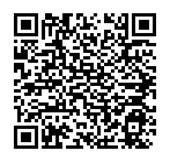
1. Speaker A is talking about her...
а) childhood friend
b) brother
c) best friend г) next-door neighbour
d) boyfriend
2. Speaker B is talking about his...
а) childhood friend
b) brother
c) best friend г) next-door neighbour
d) boyfriend
3. Speaker C is talking about her...
а) childhood friend
b) brother
c) best friend г) next-door neighbour
d) boyfriend
4. Speaker D is talking about his...
а) childhood friend
b) brother
c) best friend г) next-door neighbour
d) boyfriend
5. Speaker E is talking about her...
а) childhood friend
b) brother
c) best friend г) next-door neighbour
d) boyfriend
6. A - Her next-door neighbour also worked with her mum.
а) True
b) False
7. Her next-door neighbour has a healthier lifestyle now.
а) True
b) False
8. He didn't see his brother after he went to university.
а) True
b) False
9. He supports the same football team as his brother.
а) True
b) False
10. She and her friend argued about a boy.
а) True
b) False
11. She is going to go to the same university as her friend.
а) True
b) False
12. He didn't have much in common with his friend when they were young.
а) True
b) False
13. He still sees his friend regularly.
а) True
b) False
14. She didn't like the look of her boyfriend at first.
а) True
b) False
15. She thinks their relationship will last for a long time.
а) True
b) False
Test 2
«Art»

Read the text once more. Answer the questions:
1. What types of art are there?
2. What is the difference between the term 'art' and the term 'arts'?
3. What are the groups of visual arts?
4. Does sculpture depict the beauty of nature?
5. The common forms of painting are landscape painting and abstract painting , aren`t they?
6. What materials are used to create sculptures?
7. Why some visual arts are called new age visual arts?
8. Where do people use digital art?
9. What are the compounds of the film?
10.What is the main reason why movies have become so popular?
Test 3
«The British Characters»

Task 1. Put « +» if the statement is true and « - » if the statement is false
1) Generally speaking, the British are rude.
2) Most British people have their own homes.
3) British people still like hunting pets.
4) The British are closely connected to their tradition.
5) The British are often very open and spontaneous people.
6) British people still love hunting of foxes and hares.
Task 2. Choose a correct answer
1. The British are often viewed as ___.
a). the most talkative and amiable people in the world
b). the most boring people in the world
c). the most absent – minded people in the world
2. They have ____ which is not understood by the foreigners.
a). a specific sense of humour
b). a specific style in fashion
c). their private life
3. Talking to other people they always discuss ____.
a). their family matters
b). the weather or some general questions
c). their private life
4. The British always queue when they are ____.
a). waiting for a bus
b). shopping
c). taking books from a library
5. The clothes the British wear are usually ____.
a). useless
b). specific
c). unimaginatively formal
6. If you have a British friend, this is ____.
a). a friend for life
b). a hooligan and vandal
c). a reserved person
Test 4
“The gift”

Task 1. True or false
1. Miss McCarty spent more than 65 years washing and ironing clothes.
2. Miss McCarty had much money.
3. Once Miss McCarty visited the White House.
4. In 1967 her uncle died and left her a modest house in which she still lives.
5. She was afraid to fly.
6. Miss McCarty's generosity inspired many to give money to poor people.
Task 2. Choose a correct answer
1. How old was Miss McCarty?
a) 65
b) 55
c) more than 75
d) 60
2. What was her job?
a) she made laundry for other people
b) she ironed the clothes of other people
c) she fixed the other people's clothes
d) she washed and ironed the other people's clothes
3. People of how many generations were the clients of Oscola? a) one
b) two
c) three
d) four
5. What did her mother leave her?
a) her house
b) her work
c) her money
d) her clothes
6. Miss McCarty's generosity inspired many to give money to …
a) the university
b) poor people
c) her friends
d) students
7. McCarty … and lived not a rich life.
a) washed and ironed
b) played and ironed
c) cleaned and ironed
d) washed and cooked
Test 5
«Ukrainians»
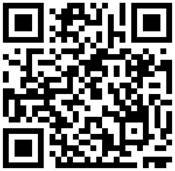
І. Are the following statements true or false?
1. Ukrainian mentality was formed under the influence of many reasons.
2 .Ukrainians are more hardened, have better abilities to survive in any conditions.
3. Ukrainians have been known as hard - working, thrifty, skilled farmers who love their native land, good family men and devoted wives.
4. They aren’t typically kind - hearted, friendly, hospitable and well – wishing to both fellow country people and foreigners.
5. Ukrainians love children, nature and animals.
6. There isn’t respect for elders, for the deceased.
7.Ukrainians have always valued restraint, consideration and a realistic view of life.
8.They are wonderful entrepreneurs: highly adaptable, flexible, inventive and creative.
II. Answer the questions.
1. What factors was formed Ukrainian mentality?
2. What kind of people are Ukrainians?
3. Have Ukrainians a very special sense of humour?
4. Are they impolite and angry?
Test 6
«Dover collage»
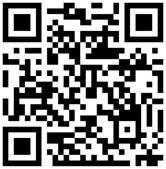
І. Are the following statements true or false?
1. Dover College is a private high school in the UK.
2. The school community is relatively small – fewer than 600 pupils.
3. A unique feature of the College is its Chapel – a wonderful 12th century building.
4. There are ten Houses at Dover College at which all pupils, both day and boarding, belong.
5. Dover College aims to develop each individual to the best of his\her abilities.
6. Dover College aims to look after the needs of each individual pupil throughout the school.
ІI. Finish the sentences.
1. It is located in the beautiful setting of the medieval________.
a) College Chapel b) St Martin’s Priory c) Housemasters
2. A unique feature of the College is its Chapel – a wonderful _________building.
a) 12th century b) 15th century c) 17th century
3. All _________ attend short Chapel services regularly.
a) teachers b) people c) pupils
4. The school community is relatively small–fewer than 400 pupils ____.
a) from 3 to 15 years b) from 4 to 18 years c) from 4 to 16 years.
5. Reports are sent to_________ every term and parents’ evenings take place regularly.
a) children b) teachers c) parents
6. The class sizes are small, rarely greater than______.
a) 16 b) 12 c) 21
Test 7
«London Eye»
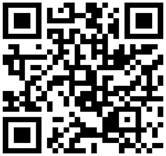
І. Complete the sentences using the suggested variants:
1. The London Eye is situated _____ .
a) in the East End
b) on the River Thames
c) near the Hyde Park
2. The London Eye is _____ .
a) a gigantic observation wheel
b) a museum
c) the National preserve
3. It took _____ years to complete it.
a) five b) six c) seven
4. It was built to celebrate _____ .
a) the New Millennium
b) the Queen’s birthday
c) the achievements of the past century
5. _____ countries took part in its construction.
a) Five b) Four c) Six
II. Are the following statements true or false?
1. The London Eye stands on the River Severn.
2. The Romans settled in Londinium at the beginning of the first millennium.
3. As it was the biggest observation wheel.
4. The main structure was built in the New Zealand.
5. The cables were made in Italy and the capsules in France.
6. So it is a truly American project!
7. It’s impossible to get on the Eye without the ticket.
8
«Journalist»
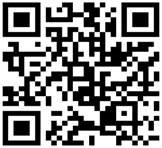
І. Are the following statements true or false?
1. A journalist is a person who writers news reports for newspapers.
2. Their main task is to inform people on present, past and future events.
3. A journalist is the person who simply appears on TV or writes articles.
4. A person who wants to become a journalist mustn’t have higher education, know psychology and foreign languages.
5. Real professionals haven’t fame and money.
6. Hundreds of journalists are killed every year.
IІ. Finish the sentences.
1. We know that there are many… .
2. A journalist is a person who … .
3. To become a well-known journalist a person must be … .
4. They have a rare chance to … .
5. They often have to work in … .
6. It is a good choice in the world of … .
9
«My future profession»

І. Are the following statements true or false?
1. Finishing school is the beginning of the independent life for millions of school leavers.
2. Many roads are open before them: kindergartens, hospitals and universities.
3. I want to become an English teacher.
4. During all school years Mathematics was my favourite subject.
5. My grandparents are also teachers and I know that teaching is a very specific and difficult job.
6. Teachers develop their pupils’ intellect, form their views and characters, their attitudes to life and to other people.
7. I think that love for children combined with the knowledge I’ll get at the institute would be quite enough to succeed in my work.
8. It is not an easy thing to choose a profession out of more than 2,000 existing in the world.
ІI. Answer the question to the text.
1. What do you want to be?
2. What is your favourite subject?
3. Who are your parents?
4. What do the teachers do?
10
«Describing people»
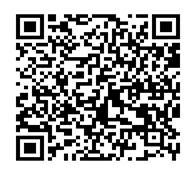
1. Aurelia is asking about Hannah’s ...
а) boyfriend.
b) brother.
c) friend.
2. Hannah’s brother's name is _________.
а) Den. б) Jem.
b) Jake.
3. Hannah’s brother, Jem, has ...
а) long, brown hair.
b) a girlfriend.
c) a twin sister.
4. Hannah has ... .
а) one brother.
b) two brothers.
c) a brother and a sister.
5. Alex and Jem are both ________ years old.
а) 17
b) 15
c) 16
6. Alex and Jem ...
а) look different.
b) look the same.
c) have the same hair but different eyes.
7. Jem has got a girlfriend Lucy. She is a pretty girl with _______.
а) a short brown hair.
b) a long brown hair.
c) a long blond hair.
8. Alex and Jem both have _________ eyes.
а) grey
b) brown
c) green
9. Alex and Jem both _______ .
а) tall and sick.
b) tall and thin.
c) short and thin
10. And, has got Alex a __________ ?
а) a girlfriend.
b) a pet.
c) a friend to go to the cinema.
11. Aurelia is interested in Alex.
а) True
b) False
12. Aurelia and Hanna are __________ .
а) sisters.
b) friends.
c) neighbors
Test 11
«Pollution»

І. Answer the question to the text.
1. What is the greatest problem for humanity today?
2. What is pollution?
3. What did Chornobyl’ disaster show?
4. What can be done to project nature and human life?
ІІ. Mark the sentences true or false:
1. Inventions never bring harm to a man.
2. Computers have become the part of our life.
3. The problem of pollution is extremely topical for low inhabited areas.
4. Present automobile transport is safe for the environment.
5. There are numerous wastes recycling plants everywhere.
6. It is necessary to use purification equipment, new recycling technologies; to learn to use nature sources of energy.
7. The wastes from plants and factories contaminate water and soil.
8. Millions of people all over the world fight against pollution.
Test 12
«Earthquake»

I. Are the following statements true or false?
1. The first seismograph was developed in the 20th century.
2. Richter was a famous German seismologist.
3. An earthquake may be measured by its magnitude or its intensity. 4. The Richter scale always reveals the degree of damage caused by an earthquake.
5. People can feel all earthquakes which occur on our planet.
6. Earthquakes happen only in winter.
7. Earthquakes usually last about 10 – 15 minutes.
8. All underwater earthquakes cause tsunamis.
ІІ. Answer the questions:
1. Why are earthquakes dangerous?
2. Can earthquakes happen under the sea?
3. Can scientist say when powerful earthquakes may occur?
4. What can cause the most injuries and deaths during the earthquake?
5. Why do earthquakes exact a profound emotional toll on survivors?
6. What qualities can people demonstrate when an earthquake strikes their country?
Test 13
«Make healthy food choices»

І. Are the following statements true or false?
1. Fruit, vegetables, grains and legumes tend to be high in fat and have cholesterol.
2. The American Heart Association suggests eating 40 – 50 grams of dietary fibre per day.
3. Coconut is high in saturated fat; olives and avocados are high in calories.
4. Canned, processed and preserved vegetables also mustn’t contain added sodium.
5. In some people, too much sodium (salt) can lead to high blood pressure.
6. Nuts and seeds don’t have cholesterol and are good sources of protein.
ІI. Finish the sentences.
1. Fruit, vegetables, grains and legumes are also good sources of … .
2. The American Heart Association suggests that you eat … .
3. Pectin and oat bran may reduce … .
4. The American Heart Association suggests eating … .
5. Some food companies are … .
6. Nuts and seeds tend to be very … .
Test 14
«Meals in Ukraine»

I. Mark the statements true (+) or false (-)
1. Fruits and vegetables are grown under the hot sun in rich Ukrainian soil often without any chemical fertilizers.
2. Cattle, pigs, sheep and poultry are not fed with natural products.
3. Since old times Ukrainian national cooking has been famous for tasteless dishes.
4. The most popular Ukrainian dish has up to 12 components.
5. Many Ukrainians prefer to eat borsch before hard work.
6. Traditional food is preferable in many Ukrainian families.
II. Answer the questions.
1. What food do we like to eat in Ukraine?
2. Why do Ukrainian products have natural taste?
3. What is Ukrainian national cooking famous for?
4. Why is borsch useful for health?
5. Why is traditional Ukrainian food interesting from medical point of view?
6. Why do many Ukrainians prefer traditional food?
7. What food do you prefer? Why?
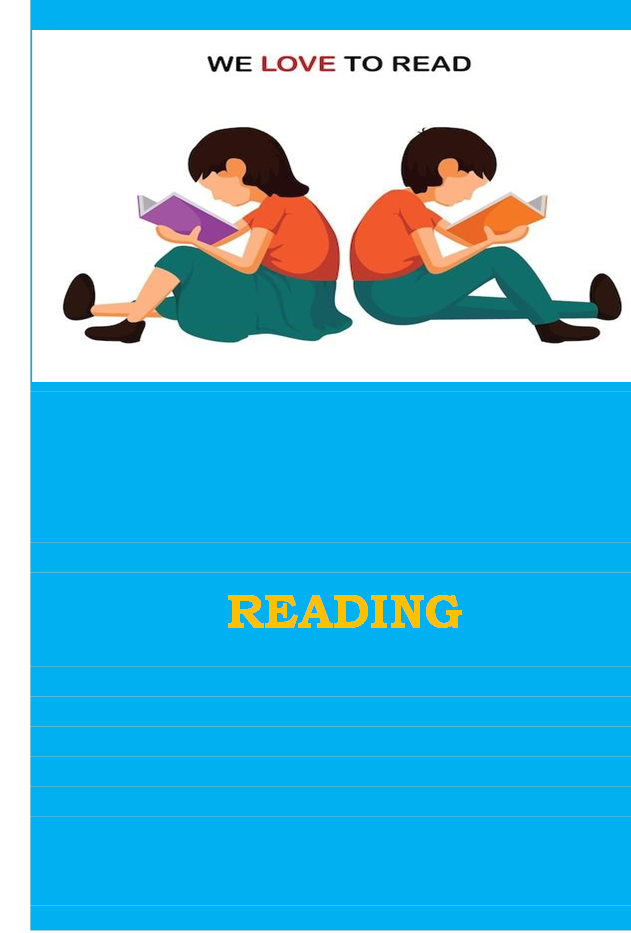
Test 1
«Canada geese»
Canada geese can be seen and heard in many areas of British Columbia. They usually stay till November or December before flying south for the winter in search of warmer climates.
Canada geese have black heads, tails, necks and feet and white feathers on their heads. Their lifespan is quite long, ranging from twenty to thirty years. While Canada geese tend to produce young at the early age of three, females are known to reproduce up to the age of twenty, laying four to seven eggs each spring.
Canada geese have very strong family relations. In fact, both parents tend to their young for nearly a year. Families st8ay together until the time comes to return to the breeding areas. It is only at this time that the geese must go their separate ways. Because Canada geese are a national symbol, it is illegal to harm them in any way. This policy has actually resulted in an overpopulation of the birds. For example, in Vancouver, British Columbia, it is not uncommon to see a family of Canada geese walking around on a highway!
True or False
|
1 |
Canada geese are protected from hunting by the Canadian government. |
|
|
|
2 |
The geese stay all winter in northern Canada. |
|
|
|
3 |
Unfortunately, Canada geese have short life spans. |
|
|
|
4 |
Canada geese have very colourful feathers. |
|
|
|
5 |
Female geese produce many young over their lifetimes. |
|
|
Test 2
«About myself»
When I was born, my parents were living in a house in a small village about 20 kilometres from the capital. I was three years old when my brother was born and my parents decided that we needed a larger home. We first moved into a rented flat for fifteen months while the new block of flats we were going to move
to was being completed. I don’t think my parents liked the rented flat because it was smaller than our old house.
We finally moved into the capital at the beginning of 1988. Our flat wasn’t really large, only 68 square metres, but there was enough room for two adults and two small boys. There were two bedrooms, a cosy living-room with a balcony, a small bathroom and a kitchen, where we used to have the family meals, as well.
I started school the following September, and my brother went to kindergarten. I still remember my first day at school. I even remember that there were 38 students in my class – but of course I’ve long forgotten most of their names by now.
We lived in the same flat all the time I was at school. I only moved house again when I started university in 2003. I decided to study forestry so I had to move to a town near the border. Rents were quite expensive, so I decided to move into a shared flat. Five of us rented a large flat in the city centre, and shared all the housework. I had the time of my life! I’m still living in the same town, but I’m sharing with just one person now. It’s more comfortable but I often miss the big parties we used to have at the other place.
True or False (T/F)
|
1 |
The author was born in a city. |
|
|
|
2 |
The reason the author’s parents didn’t like the rented flat was because it wasn’t spacious enough. |
|
|
|
3 |
The author has been keeping in touch with many of his classmates. |
|
|
|
4 |
The author finds it awful that in his university years he had to do the housework by himself. |
|
|
|
5 |
The author liked big parties very much. |
|
|
Test 3
«Staying alive at sea»
It can be dangerous to travel by sea. Ships sometimes sink far away from land. When this happens, the sailors have to get into small boats. If another ship does not come and help them, and they do not have enough food or water, they may die.
Most people believe we must not drink sea water. They believe that if we do we shall be very ill because of all the salt in the water. A doctor called Alain Bombard did not believe this. He thought that people could stay alive by drinking sea water and eating small fish, animals and plants from the sea. On the 19th October 1953, he sat out in a small boat to cross the Atlantic Ocean. He did not take any food or water with him.
Every day Dr. Bombard drank just a little sea water. He also caught fish and they had water in them. He drank this water. He could not cook the fish so he ate them as they were. He took small plants from the sea, which gave him more food. Dr. Bombard became hot, tired and quite ill, but after 65 days at sea, he was still alive. He travelled 2,750 miles from one side of the Atlantic Ocean to the other and on the 24th December 1953, he reached Barbados.
He lost 20 kilos but he showed that people can live on sea water and the animals and plants in the sea.
1.Match the words and phrases:
1. food a. go down under water
2. sink b. sometimes to eat
3. wait c. small ships
4. boat d. stay for someone or something
2. Complete these sentences using words: dangerous, salt, alive, miles, sinking, caught, ill, litlle.
a. At the end of the journey, Dr. Bombard was ______ but happy.
b. Dr. Bombard drank a ______ sea water every day on his journey.
c. Most people cannot stay _____ at sea without food or water.
d. It was very ______for Dr. Bombard to travel alone at sea.
e. You won’t get to the town tonight. It’s many _______ away.
f. I went fishing last week and I ______ three fish.
g. I like to put ______ on my meals.
h. Help! My boat is ______ and I can’t swim.
3. Find these words in the passage:
dangerous (line 1) travelled (line 25) believe (line 7) just (line 17)
Match each word to the nearest meaning:
1. think to be true
2. only
3. not safe
4. went from one place to another
5.
4. Fill in the words die, show, lived, without, water, across, took in the correct place in the text:
Many people die at the sea because they have no food or water. Dr. Bombard wanted to (a) that people can drink sea water and not (b). He went (c) the Atlantic Ocean in a small boat (d) food or water. His journey (e) 65 days. He (f) on fish, sea water, and small plants. When he came to Barbados, he was tired but alive.
Test 4
«How Singing Began»
We know that people learned to write long, long ago. For more than 7,000 years people have been writing down their thoughts. But even before people learned to write they could sing! Music began even before writing.
The people of old times drew themselves on rocks. Some of the pictures that preserved show dancers and singers, and also people playing some musical instruments. So our earliest ancestors were fond of music.
How did people learn to sing? What musical instruments did they play? Archaeologists and musicologists give the answer to these questions.
Our ancestors lived in groups because only together they could get their food and defend themselves from wild animals. They learned to make tools and work together.
The group of early men worked together like an orchestra and they usually murmured to each movement of their hand or foot. Without the murmuring (or
“singing”) they could not do the work.
Later people learned to make other and better tools and it was not necessary to sing during their work. But singing began, and there are songs in many countries which are probably children of these first work songs.
When man made his earliest tools, he learned to make musical instruments, too. Those pictures on rocks show people playing musical instruments. A very careful analysis of the bones of animals that archaeologists found in a number of ice-age camps show that the men of that time could use them for making sounds. So bones of animals, horns, pieces of wood were man’s first musical instruments. By blowing into horns or bones people could make a very loud sound. They could also make sounds by beating one piece of wood against another or a piece of wood against a stone. People of that time could also use strings and fur to make musical instruments. That was the time when people did not have metal. And yet they could sing and were fond of music
1.Read the text and choose the correct item to complete the sentence.
1. For more than 7,000 years people have been writing down their … a. music
b. stories
c. thoughts
d. letters
2. People could sing before they learned …
a. to speak
b. to draw
c. to read d to write
3. Some of the pictures on the rocks that preserved show …
a. dancers and singers
b. ancient actors
c. teachers and pupils
d. fighting men
4. Our ancestors lived
a. in groups
b. alone
c. in families
d. in tribes
5. The group of early men worked together like …
a. an ensemble
b. a company
c. a rock group
d. an orchestra
6. Our ancestors defended themselves from …
а) enemies
b) each other
c) wild animals
d) Invaders
7. The ancient people could not do the work without …
а) dancing
b) murmuring
c) drawing
d) fighting
8. When man made his earliest tools he learned to make …
а) books
b) weapons
c) musical instruments
d) houses
9. The pictures on the rocks show people playing …
а) musical instruments
b) games
c) chess
d) ball
10. For making sounds the men of ice-age could use …
а) plants
b) the bones of animals
c) birds’ eggs
d) metal
11. Murmuring is …
а) singing
b) dancing
c) playing games
d) drawing
12. People of that time could also use… to make musical instruments.
а) wood and strings
b) strings and fur
c) fur and metal
d) animal’s skin
Test 5
«Marie Сurie»
Marie Curie was one of the most accomplished scientists in history. Together with her husband, Pierre, she discovered radium, an element widely used for treating cancer, and studied uranium and other radioactive substances. Pierre and Marie’s amicable collaboration later helped to unlock the secrets of the atom.
Marie was born in 1867 in Warsaw, Poland, where her father was a professor of physics. At an early age, she displayed a brilliant mind and a blithe personality. Her great exuberance for learning prompted her to continue with her studies after high school. She became disgruntled, however, when she learned that the university in Warsaw was closed to women. Determined to receive a higher education, she defiantly left Poland and in 1891 entered the Sorbonne, a French university, where she earned her master’s degree and doctorate in physics. Marie was fortunate to have studied at the Sorbonne with some of the greatest scientists of her day, one of whom was Pierre Curie. Marie and Pierre were married in 1895 and spent many productive years working together in the physics laboratory. A short time after they discovered radium, Pierre was killed by a horsedrawn wagon in 1906. Marie was stunned by this horrible misfortune and endured heartbreaking anguish. Despondently she recalled their close relationship and the joy that they had shared in scientific research. The fact that she had two young daughters to raise by herself greatly increased her distress.
Curie’s feeling of desolation finally began to fade when she was asked to succeed her husband as a physics professor at the Sorbonne. She was the first woman to be given a professorship at the world-famous university. In 1911 she received the Nobel Prize in chemistry for isolating radium. Although Marie Curie eventually suffered a fatal illness from her long exposure to radium, she never became disillusioned about her work. Regardless of the consequences, she had dedicated herself to science and to revealing the mysteries of the physical world.
I. Choose the right variant
1. The Curies’ _________ collaboration helped to unlock the secrets of the atom. 1. friendly
2. competitive
3. courteous
4. industrious
5. chemistry
2. Marie had a bright mind and a ______ personality.
1. strong
2. lighthearted
3. humorous
4. strange
5. envious
3. When she learned that she could not attend the university in Warsaw, she felt _________. 1. hopeless
2. annoyed
3. depressed
4. worried
5. None of the above
4. Marie _________ by leaving Poland and traveling to France to enter the Sorbonne.
1. challenged authority
2. showed intelligence
3. behaved
4. was distressed
5. Answer not available
5. _________ she remembered their joy together.
1. Dejectedly
2. Worried
3. Tearfully
4. Happily
5. Irefully
6. Her _________ began to fade when she returned to the Sorbonne to succeed her husband.
1. misfortune
2. anger
3. wretchedness
4. disappointment
5. ambition
7. Even though she became fatally ill from working with radium, Marie Curie was never _________.
1. troubled
2. worried
3. disappointed
4. sorrowful
5. disturbed
Test 6
«School in the Slums»
Mellish school is in the slums of Brooklyn for pupils between twelve and fifteen years of age. There are about 1500 pupils there, and 90 teachers.
It’s a problem school, perhaps one of the most difficult schools in America. The white teachers can’t walk to the school because they may be attacked. They all drive to school, and their cars have special locks. There’s always a black policeman at the door of the school. He has a radio contact with the school guards. Pupils must have a
written permission from the teacher if they want to go to the toilet. There’s a guard outside the washroom. Only one child can go into the washroom at a time, and he can’t stay there long.
The children who live in that district go to school that. They are all black children. However, why do the teachers work there?
“It’s very hard of course,” Jane says Flinch, a forty – five-year-old teacher. Most children have problems at home. Some of them are beaten by their parents. Some of them sleep at the lessons because they had to work at night. Some of the children get sick at the lessons because they didn’t have breakfast or even a meal for a day or two.
It’s the love of the job that keeps the teachers in that school. They teach and do social work. They feel that they are doing something good for the children who need help.
“There’s also the problem of violence,” says one of the teachers. “Sometimes when I go into a class, I can feel that some of the children are like a dynamite. However, I
feel quite safe. I am sure that other pupils will help me.” There is very little money for teaching in that school. There is no money to buy food for the children.
The principal of the school has been there for many years. A lot of his happy optimism has gone. “No, i’m not optimistic about the future. Look around you,” he says and points out of the window at the high wall round the school. “It’s not a very bright sight: buildings have holes instead of the windows, shops are closed, groups of people are sitting on the steps of the houses. They have nowhere to go and nothing to do.”
“We need money,” he says, “money is the only way to help this school and these people, and, of course, jobs for the people.”
Task 1. Finish the sentences 1. Mellish school is for
a) small children.
b) older children.
c) small and older children.
2. The white teachers can’t walk to school because
a) they live far from the school.
b) they don’t like to walk.
c) it’s dangerous for them.
3. There’s a policeman
a) at the door of the school.
b) near the toilet.
c) outside the washroom.
4. The white teachers work there because
a) they can’t find a better job.
b) they love their job.
c) they get a lot of money there. 5. The school needs
a) more money
b) more teachers.
c) more policemen.
Task 2. Say if the statements are true, false or not mentioned.
1. Mellish school is in the slums of Mexico.
2. Most children have problems at home.
3. Mellish a problem school.
4. The principal of the school has 5 children in his family.
5. The school needs money.
6. It’s good salary that keeps the teachers in that school.
Task 3. Answer the questions.
Where is Mellish school situated?
How many pupils are there in the school?
Is it hard or easy for the teachers to work in this school?
Why do some of the pupils sleep during the lessons?
Is the principal optimistic?
Task 4. Fill in the gaps with one correct word after the correct word.
Mellish school is one of the most difficult schools in ___________.
The ___________ teachers can’t walk to the school because they may be attacked. Pupils must have a written permission from the teacher if they want to go to the ___________.
The teachers teach and do __________ work.
Test 7
1 Read the text and mark (+) the following statements «True» or «False».
«Father’s mistakes»
Once there was a man who had three daughters and was a single parent to his children. One morning he asked his eldest daughter, Sonya, to wash the breakfast dishes before going to school. But she was already running late, so she burst into tears. The father decided that she was just trying to get out of an unpleasant chore, and he demanded that she dry her tears and get back to work immediately. She silently obeyed him, but that day they were driving to school in silence. The man dropped his daughters and moved to the office. He tried to work but couldn’t concentrate — all he could see was his daughter’s scared, tear-stained face as she climbed out of the car. So he decided to say sorry to his daughter. He took permission from the school to take his daughter for lunch. When she came out, he turned towards his daughter and said, «Sonya, I am sorry. It’s not that I shouldn’t have asked you to help out at home, but I had no right to it this morning without any previous warning. I upset you at a time when you most needed my love and support. And I let you go without saying «I love you. Please forgive me.» Sonya put her arms around her father’s neck and said, «Oh, Dad, of course I forgive you. I love you too.»
True False
1 The man in the story had no wife.
2 Sonya had a brother and a sister.
3 Sonya was the eldest child.
4 It was Sonya’s duty to wash the dishes every morning.
5 Sonya didn’t want to wash the dishes because she didn’t like it. 6 The father was rude to his daughter.
7 Sonya didn’t obey her father.
8 Sonya got to school by bus that day.
9 The father felt guilty and couldn’t say a word.
10 Sonya easily forgave her father.
Test 8 «Mount Vesuvius»
Mount Vesuvius, a volcano located between the ancient Italian cities of Pompeii and Herculaneum, has received much attention because of its frequent and destructive eruptions. The most famous of these eruptions occurred in A.D. 79. The volcano had been inactive for centuries. There was little warning of the coming eruption, although one account unearthed by archaeologists says that a hard rain and a strong wind had disturbed the celestial calm during the preceding night. Early the next morning, the volcano poured a huge river of molten rock down upon Herculaneum, completely burying the city and filling the harbor with coagulated lava.
Meanwhile, on the other side of the mountain, cinders, stone and ash rained down on Pompeii. Sparks from the burning ash ignited the combustible rooftops quickly. Large portions of the city were destroyed in the conflagration. Fire, however, was not the only cause of destruction. Poisonous sulfuric gases saturated the air. These heavy gases were not buoyant in the atmosphere and therefore sank toward the earth and suffocated people.
Over the years, excavations of Pompeii and Herculaneum have revealed a great deal about the behavior of the volcano. By analyzing data, much as a zoologist dissects an animal specimen, scientists have concluded that the eruption changed large portions of the area’s geography. For instance, it turned the Sarno River from its course and raised the level of the beach along the Bay of Naples. Meteorologists studying these events have also concluded that Vesuvius caused a huge tidal wave that affected the world’s climate.
In addition to making these investigations, archaeologists have been able to study the skeletons of victims by using distilled water to wash away the volcanic ash. By strengthening the brittle bones with acrylic paint, scientists have been able to examine the skeletons and draw conclusions about the diet and habits of the residents. Finally, the excavations at both Pompeii and Herculaneum have yielded many examples of classical art, such as jewelry made of bronze, which is an alloy of copper and tin. The eruption of Mount Vesuvius and its tragic consequences have provided everyone with a wealth of data about the effects that volcanoes can have on the surrounding area. Today, volcanologists can locate and predict eruptions, saving lives and preventing the destruction of other cities and cultures.
1. Herculaneum and its harbor were buried under _________ lava.
1. liquid
2. solid
3. flowing
4. gas
5. Answer not available
2. The poisonous gases were not _________ in the air.
1. able to float
2. visible
3. able to evaporate
4. invisible
5. able to condense
3. Scientists analyzed data about Vesuvius in the same way that a zoologist _________ a specimen.
1. describes in detail
2. studies by cutting apart
3. photographs
4. chart
5. Answer not available
4. _________ have concluded that the volcanic eruption caused a tidal wave.
1. Scientists who study oceans
2. Scientists who study atmospheric conditions
3. Scientists who study ash
4. Scientists who study animal behavior
5. Answer not available in article
19. Scientists have used _________ water to wash away volcanic ash from the skeletons of victims.
1. bottled
2. volcanic
3. purified
4. sea
5. fountain
Test 9
Puppies For Sale
Once a small boy was attracted with a sign above the door of the store that read «Puppies For Sale». «How much are you going to sell the puppies for?» the boy asked the store-owner. «Anywhere from $30 to $50.» «I have $2.37,» he said. «Can I please look at them?» The store-owner smiled and whistled and out of the kennel came Lady followed by five tiny balls of fur. One puppy was lagging considerably behind. The store owner explained that it was ill and it would always limp. The little boy became excited. «That is the puppy that I want to buy.» «If you really want him, I’ll just give him to you.» The little boy got quite upset. He said, «I don’t want you to give him to me. I’ll pay the full price. I’ll give you $2.37 now, and 50 cents a month until I have him paid for.» The store-owner argued, «But this little dog is never going to be able to run and jump and play with you like the other puppies.» To his surprise, the little boy reached down and revealed a badly twisted, crippled left leg supported by a big metal brace. He looked up at the store-owner and softly replied, «Well, I don’t run so well myself, and the little puppy will need someone who understands!»
1 Read the text and mark (+) the following statements «True» or «False».
1 A small boy wanted to buy a hamster.
2 The money the boy had was not enough to buy a puppy.
3 Lady was the mother of the puppies.
4 The puppies were small and puffy.
5 One puppy couldn’t hear well.
6 The little boy wanted a puppy that limped.
7 The store-owner presented the puppy to the boy.
8 The boy insisted on paying the full price for the puppy.
9 The boy needed a puppy to run and jump and play with him.
10 The boy had a damaged leg so he believed he could become a good friend to the puppy.
Test 10 «Reflections»
I’m sitting at a cafe, a peaceful little place hidden back among the pine trees. It’s just past noon, late July, and I’m listening to the desperate sounds of a life-or-death struggle going on a few feet away. There’s a small fly burning out the last of its short life’s energies in an attempt to fly through the glass of the windowpane. The fly’s strategy is try harder. But it’s not working. The fly will die there on the windowsill. Across the room, ten steps away, the door is open. Ten seconds of flying time and this small creature could reach the outside world it seeks. With only a fraction of the effort now being wasted, it could be free of this self-imposed trap. It would be so easy. Why doesn’t the fly try another approach, something different? How did it get so locked in on the idea that this particular effort offers the most promise for success? This approach makes sense to the fly. Regrettably, it’s an idea that will kill. Trying harder isn’t necessarily the solution to achieving more. Sometimes, in fact, it’s a big part of the problem. If you stake all your hopes for a breakthrough on trying harder than ever, you may kill your chances for success.
1 Read the text and mark (+) the following statements «True» or «False».
1 From the text we can say what season it is.
2 The author is at work.
3 The author can hear a bird singing near the open door.
4 The insect trying to fly through the glass of the windowpane is a bee.
5 The author can see a way out for a fly.
6 The author believes that the trying harder strategy doesn’t always work. 7 According to the author, trying another approach could help the fly.
8 The author says that a person can get a success if he does his best.
9 From the story we know what happened to the fly.
10 The author wants us to learn from this story that working harder may bring a breakthrough.
Test 11 «Family relationships»
When I was a kid, I remember one night in particular when Mum had made dinner after a long, hard day at work. On that evening my Mum placed a plate of eggs, sausage and extremely burnt biscuits in front of my dad. I remember waiting to see if anyone noticed! Yet all my dad did was reach for the biscuit, smile at my Mum and ask me how my day was at school. I don’t remember what I told him that night, but I do remember hearing my Mum apologize to my dad for burning the biscuits. And I’ll never forget what he said, «Honey, I love burned biscuits.» Later I went to kiss my Daddy good night and asked him if he really liked his biscuits burned. He wrapped me in his arms and said, «Your mum put in a long hard day at work today and she is really tired. And besides a burnt biscuit never hurt anyone!
You know, life is full of imperfect things and imperfect people. I’m not the best, and I forget birthdays and anniversaries just like everyone. What I have learned over the years is that learning to accept each other’s faults and choosing to celebrate each other’s differences is one of the most important keys to creating a healthy, growing, and lasting relationship.»
1 Read the text and mark (+) the following statements «True» or «False».
1 The author describes the days of his childhood.
2 The story happened at the weekend.
3 It was the father who cooked dinner in their family.
4 For dinner they liked to eat burnt biscuits.
5 The boy and the father didn’t complain about the food.
6 The mother was sorry the dinner was not perfect.
7 The father didn’t want to upset mother by criticizing her cooking.
8 The boy had a long talk with his father at dinner.
9 The boy’s father thought that nobody had to be perfect.
10 From the text we can say that the author had a happy family.
Test 12 «First we shape ourselves»
There was a millionaire who was bothered by severe eye pain. He consulted so many physicians and was getting his treatment done .But the ache was even more severe than before. At last a monk who was supposed to be an expert in treating such patients was called for by the millionaire. The monk understood his problem and said that for some time he should concentrate only on green colours and to let his eyes fall on any other colours. The millionaire got together a group of painters and purchased barrels of green colour and directed that every object his eye was likely to fall on be painted in green colour just as the monk had directed. When the monk came to visit him after a few days, the millionaire’s servans ran with buckets of green paint and poured on him since he was in red dress lest their master see any other colour and his eye ache come back. Hearing this, the monk laughed and said, «If only you had purchased a pair of green spectacles, you could have saved these walls and trees and pots and all other articles and also could have saved a large share of his fortune. You cannot paint the world green.» Let us change our vision and the world will appear accordingly. It is foolish to shape the world, let us shape ourselves first.
1 Read the text and mark (+) the following statements «True» or «False».
1 The millionaire in this story was blind.
2 He didn’t do what doctors told him to.
3 At last he asked the monk as a medical expert.
4 The monk’s advice was to look at green objects.
5 The millionaire invited painters to paint the house in different colours.
6 The monk came to the millionaire wearing green.
7 The monk poured green paint on the servant.
8 The monk said he didn’t actually mean to paint everything green.
9 The millionaire bought a pair of green spectacles in order to see the world green. 10 According to the moral of the story, the world starts changing after our attitude to a situation is changed.
Test 13 «Sincerity of love»
Once upon a time there lived a young man and his wife. They lived poorly but happily as they loved and respected each other greatly. One day, the wife, who was beautiful and had very long hair, asked him to buy her a comb for her hair to grow well and to be well-groomed. The man felt very sorry but he had to say no. He explained that he did not even have enough money to fix the strap of his watch he had just broken. The wife did not insist on her request. The man went to work and passed by a watch shop, sold his damaged watch at a low price and went to buy a comb for his wife. He came home in the evening with the comb in his hand ready to give it to his wife. He was surprised when he saw his wife with a very short haircut. She had sold her hair and was holding a new watch band.
They looked at each other and tears flowed from their eyes, not for the nobility of their actions, but for the sincerity of their love.
1 Read the text and mark (+) the following statements «True» or «False».
1 The man and his wife were old and unhappy.
2 They didn’t have much money. 3 The wife had a short haircut.
4 The wife wanted her hair to grow longer and look neat.
5 The man couldn’t afford to buy a comb. 6 The man had broken his watch.
7 The man went to a watch shop to buy a new watchstrap.
8 The man earned some money and bought a comb for his wife.
9 The wife sold her hair in order to make a present for her husband.
10 They cried as they were sorry about their poverty.
Test 14
«Work»
Mark Twain pointed out that if work were so pleasant, the rich would keep it for themselves. But however much people may think they dislike work, everyone has a deep psychological need for it. Everyone wants to be valued, and wages and salaries are the visible proof that we matter.
Not all kinds of work qualify, however. No matter how worthwhile or demanding they might be, bringing up children, housework and voluntary employment are not usually seen as “proper jobs”. The only “proper” job is one that provides paid employment. Being paid for a job in our society means higher personal status.
Of course we would also prefer work, to be useful, pleasant and interesting— and also well paid. But you don’t really have to enjoy your work to get pleasure from it. The fact that we have to overcome some difficulties, that we have to deal with doing routine tasks, in some way, gives us pleasure.
For example, having to be in a particular place at a particular time, working as part of a team towards a common goal, gives us a sense of purpose. The modern workplace also provides somewhere where people can assert their identity or create a new one.
Without work many people become untidy and lazy, and find they are unable to enjoy the leisure time which is available to them. When some people retire from work, they lose their sense of value and purpose. For most of their lives their personality, self-image and status have been defined by work without it they lose their appetite for life.
People who suddenly lose their jobs can find the situation particularly difficult. At a single stroke they lose all the advantages and status that a paid job provides. In a culture dominated by work, they are seen by those with jobs as incompetent or lazy. It is little wonder that stress and illness occur more frequently among the unemployed.
Employment is now changing, however. Information technology has already significantly altered the world of work. For many, the idea of a job for life is no longer realistic. Many people fear they will lose their jobs, and some are being persuaded to accept the possibility of part-time work. Even the workplace itself may become a thing of the past with more and more people working at home. This means that we may no longer be able to depend on work to define ourselves and our position in society, and that we will have to find new ways to give our lives a sense of value and purpose.
1. Put “True / False“ in this sentences
1. Mark Twain pointed out that the rich should work more.
2. People have a deep psychological need for work because they want to be rich.
3. A ‘proper job’ is one that provides paid employment.
4. People don’t have to “enjoy their work to get pleasure from it” because coping with problems can be satisfying.
5. Working as part of a team towards a common goal, gives us a good salary.
6. Without work many people become happy and tidy and enjoy their life.
7. People who suddenly become unemployed can find the situation particularly difficult.
8. Stress and illness do not occur among the people who have no job.
9. The arrival of information technology has made work more stressful. 10. The workplace itself may become a thing of the past with more and more people working at the plants.
2. Choose the right variant
1. Everyone has a deep psychological need for …
A getting wages and salaries; B having a job; C being able to rest; D having entertainments;
2. Everyone wants to be valued that is …
A to get wages and salaries; B to get prizes; C to be praised; D to be unemployed;
3. Being paid for a job in our society means …
A lower personal status; B no personal status; C higher personal status; D to become rich;
4. Some people prefer work to be useful and interesting but you do not have to
…
A cooperate with your colleagues; B get pleasure from it; C love the staff; D be paid;
5. A modern work place is a place where people can …
A have their lunch; B drink coffee for free; C assert their identity; D argue with their boss
6. Some people lose their sense of value and goal when they … A fall ill; B retire; C go bankrupt; D are offered a job;
7. A well-paid job provides …
A status of a rich person; B health insurance; C various professional possibilities; D the advantages and status;
8. The unemployed people are seen by those with jobs as …
A rich and happy; B incompetent or lazy; C boring or uninteresting; D easy going and sociable;
9. The world of work is significantly transformed by …
A nuclear technology; B management technology; C information technology; D educational technology;
10. As the employment is changing now many people fear they will …
A be replaced by the computers B get no salary; C upset their boss; D lose their jobs;
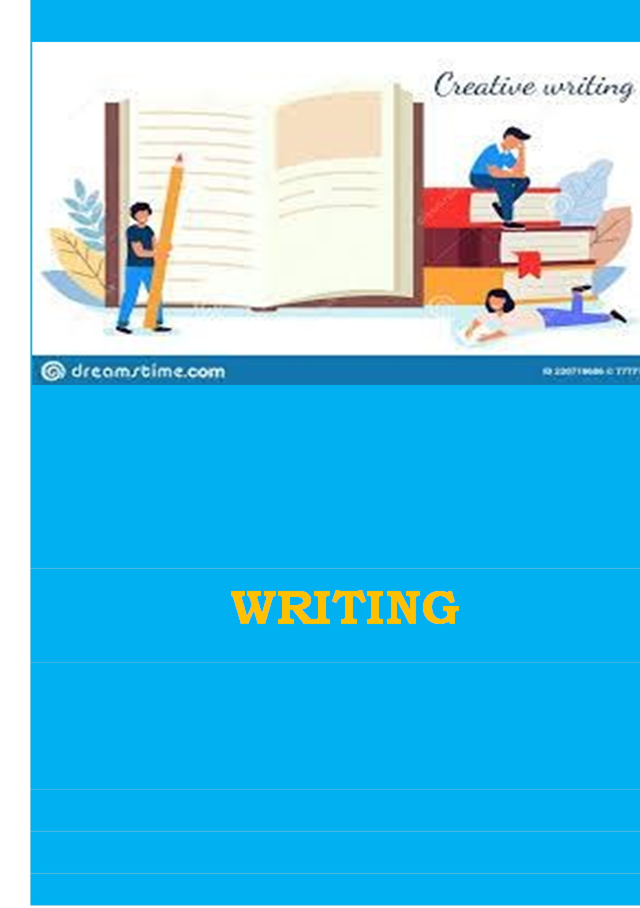
Task. 1.
Last month you took an active part in the TV quiz show “Around the World”. And you’ve won a prize – two tickets for a tour of Ukraine. Write a letter to your friend in which you
• invite him/her to join you;
• describe the means of travel and accommodations;
• describe two special places you are going to visit;
• give suggestions what he/she will need to take with him/her;
Write a letter of at least 100 words. Do not write your own name, any dates, addresses or other personal information. Start your letter in an appropriate way.
Task 2.
Imagine that a friend of yours sent you a letter asking for your advice as he/she and his/her parents disagree about what university he/she should study at. Write a letter giving your friend some advice according to the plan:
• greeting; mention receiving your friend’s letter; express sympathy.
• give your advice and the reasons for it.
• closing remarks: end the letter offering some encouragement/wishing the person good luck; express certainty that things will get better soon.
Write a letter of at least 100 words.
Task 3.
Your physical education teacher asked you to write an essay discussing pros and cons of team sports. Write:
• whether you and your friends play sports; what sports you play;
• whether you like playing in a team or you prefer exercising on your own;
• what the advantages and disadvantages of playing sports in a team are;
• give advice on how to develop skills working in a team.
Write an essay of at least 100 words.
Task 4.
You’ve just returned from your first lesson of English courses in London.
You’ve decided to write a letter to your friend about this lesson and about the teacher.
• write information about the topic of the first lesson;
•describe your first impression concerning the group and the groupmates;
•describe your English teacher and the types of activities at the lesson. Write at least 100 words. Do not write any dates and addresses.
Task 5.
While staying in a big city you visited an exhibition of a famous artist. Describe your impressions in a letter to a friend (at least 100 words), using the plan below.
• say when and where the exhibition took place;
• tell some interesting facts from the biography of the artist;
• describe your impressions of the exhibition;
• sum up the pros and cons of the exhibition.
Write a letter of at least 100 words. Do not write any dates and addresses.
Task 6.
You've got a letter from your British pen-friend. He/she writes you that he/she likes to dress well. He/she tries to buy his/her clothes at famous fashion designers' shops. But it is very expensive and his/her parents don't want to buy such clothes for him/her. Write a letter to your friend in which you:
• express your opinion about present-day fashions
• write what clothes you usually prefer to wear
• say where you usually buy clothes and who helps you to do the shopping
• give advice to your friend what he/she should do in his/her situation.
Write a letter of at least 100 words. Do not write any dates and addresses.
Task 7.
Use the plan below to write a for-and-against essay (at least 100 words) about whether schoolchildren should use e-books at school lessons.
• State the topic. • Point for schoolchildren using e-books at their lessons.
• Point against schoolchildren using e-books at their lessons.
• Sum up the advantages and disadvantages
Task 8.
You are writing your final test in English. You are going to continue mastering a foreign language in future. Write an e-mail letter to the Students’ Web Council according to the plan below:
• greeting; the purpose of your writing.
• whether you are for or against school leaving exams.
• what the advantages of the testing system are.
• whether the testing is a good way to evaluate students’ knowledge; closing remarks.
Write a letter of at least 100 words. Do not write any dates and addresses.
Task 9.
Some days ago you ordered a yellow woolen sweater, large size, and light blue jeans, medium size, in an Internet shop; however, when you got your order , you found out that there was a red woolen sweater, medium size, and light blue jeans, large size.
Write a letter of complaint to the manager of the shop:
• say why you are writing;
• complain about the order; • mention that you are extremely disappointed as you wanted to take those things on holiday with you;
• ask for replacement of the items or a full refund.
Write a letter of at least 100 words. Do not write any dates and addresses.
Task 10.
Write a letter to a local TV company with your suggestions as to how to improve the quality and raise the standard of TV programmes, using the plan below (at least 100 words).
• Explain why you have decided to write a letter to the local TV company.
• Point some positive working sides.
• Point some negative working sides.
• Offer your suggestions for improving the quality and raising the standard of TV programmes.
Task 11.
Imagine you are an English student, Jane, living and studying in Ukraine. Write an email (at least 100 words) from Jane to her friend in England, describing some of the differences she has notice:
• people (friendlier/not as friendly, better/worse sense of humour, etc.);
• interaction between people (more/less reserved, more/less formal, etc.);
• studying (more/less relaxed, more/fewer holidays, shorter/longer hours, etc.);
• the food (spicier, less/more vegetarian options, tastier, etc.);
• the climate (hotter/colder, wetter/drier, etc.)
Task 12.
You have called your friend and found out that he/she caught a cold. Write an e-mail letter to your friend according to the plan below:
• greeting; some words about the purpose of your writing.
• express your sympathy and ask your friend when he/she caught a cold.
• ask whether the doctor has examined him/her; what medicines he/she is taking.
• give him/her advice what to do until he/she is well; closing remarks; your signature. Write a letter of at least 100 words.
Task 13.
Use the plan below to write a for-and-against essay (at least 100 words) about advantages and disadvantages of social networking. Use the plan below:
• State the topic.
• Define points for social networking.
• Define points against social networking.
• Sum up the advantages and disadvantages of social networking.
Task 14.
Imagine you have got a letter from an English-speaking friend who asks you what young people in your country usually do in their spare time. Write a reply to him/her using the plan below:
• greeting; what young people in Ukraine are usually interested in.
• if their interests are different from the hobbies of the young people of the 20th century; if boys/girls have the same or different interests.
• what clubs young people attend; what books they read; what music they listen to; what films they watch.
• if young people care about the environment/politics/social problems; closing remarks; your signature. Write a letter of at least 100 words. Do not write any dates or addresses.
Список використаних джерел
1. Англійська граматика в таблицях: довідник: мова анг.,/укр. Оксана
Кузнецова, видавництво «Арий»,2018.- 176с. https://www.yakaboo.ua/anglijs-ka-gramatika-v-tablicjah.html
2. Англійська мова. Комплексне видання. ЗНО 2022. Світлана
М’ясоєдова, Оксана Ходаковська, Юлія Чернишова, видавництво «Літера ЛТД», серія книг Зовнішнє незалежне оцінювання мова анг.,/укр.,2021.-496с.
3. Верба Г.В. Граматика сучасної англійської мови: довідник: мова анг., укр/ Г.В.Верба, Л.Г. Верба- К.:ТОВ «ВП Логос - М», 2014.-288с.
4. Програма для загальноосвітніх навчальних закладів ІНОЗЕМНА МОВА 10-11 класів Рівень стандарту
5. Тести з англійської мови. Навчальний посібник. Гужва Т. М. Мова:
Українська, видавництво: «Центр», 2008.-416с.
6. Типові тестові завдання ЗНО 2022. Англійська мова. Світлана М’ясоєдова, видавництво «Літера ЛТД» Серія книг Зовнішнє незалежне оцінювання, мова анг., укр.., 2021.-128с.
https://www.yakaboo.ua/anglijs-ka-mova-tipovi-testovi-zavdannja-zno2022.html
7. https://test-english.com/listening/b1-b2/
8. https://www.testprepreview.com/modules/reading1.htm
9. https://www.yakaboo.ua/anglijs-ka-mova-kompleksne-vidannja-zno2022.html
10. https://grade.ua/uk/blog/zno-writing-70-fraz/
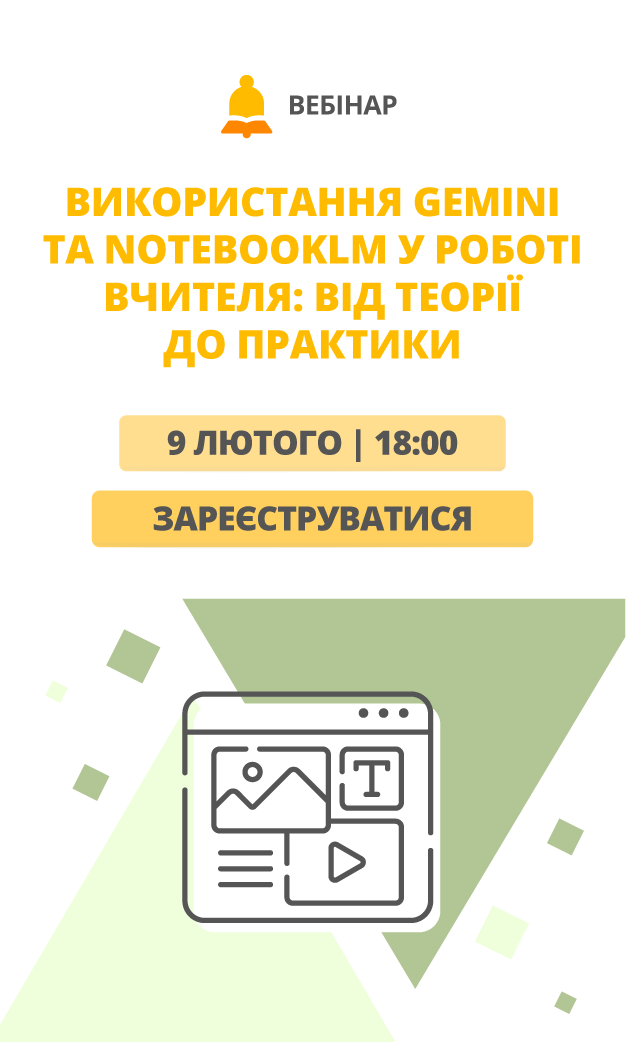

про публікацію авторської розробки
Додати розробку
